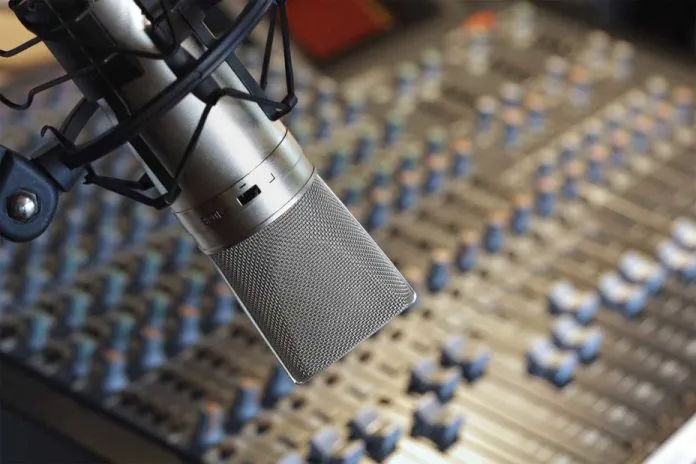Introduction
In a recent development concerning media freedom in Venezuela, the National Union of Press Workers (SNTP) has raised alarms about new restrictions imposed by the National Telecommunications Commission (Conatel). According to the SNTP, Conatel has issued directives prohibiting radio stations in several Venezuelan states from broadcasting news related to ongoing protests. This measure, reportedly accompanied by threats of fines or license revocation, underscores the escalating tensions between the Venezuelan government and the media. Additionally, the SNTP has reported a concerning pattern of attacks on journalists covering these protests. This article explores the details of these developments, their implications for press freedom, and the broader context of the current political climate in Venezuela.
Overview of the Conatel Directive
The Nature of the Restrictions
The National Union of Press Workers (SNTP) has reported that Conatel, Venezuela’s regulatory body for telecommunications, has imposed severe restrictions on radio stations across several states. These states include Bolívar, Falcón, Zulia, Carabobo, and Aragua. The directive from Conatel mandates that these radio stations refrain from broadcasting any information that could be construed as “elements classified as violence.” The rationale behind this restriction is to prevent the spread of what the government deems inflammatory or provocative content.
According to the SNTP, the Conatel directive threatens severe penalties for non-compliance. Radio stations found in violation of this directive face the possibility of substantial fines or even the revocation of their broadcasting licenses. This move is part of a broader pattern of increased government control over media coverage in Venezuela.
Communication from Conatel
Denis Cabeza, the Conatel coordinator for Bolívar state, reportedly issued a formal communication to radio station directors outlining these restrictions. The communication explicitly forbids the broadcasting of news that includes or implies elements classified as violent. The letter emphasizes that non-compliance could lead to financial penalties or the loss of broadcasting privileges.
The SNTP has shared this information on social media platforms, including X, to alert the public and the international community about the increasing media restrictions in Venezuela. The organization’s reports suggest that this directive aims to suppress coverage of protests and dissenting voices critical of the government.
Attacks on Journalists
The SNTP’s Reports on Press Attacks
In addition to the restrictions imposed by Conatel, the SNTP has reported a series of attacks on journalists covering the protests in Venezuela. These attacks are part of a broader pattern of aggression against media personnel, which the SNTP claims undermines the ability of journalists to perform their duties effectively and safely.
The SNTP’s reports indicate that journalists covering the protests have faced physical assaults, harassment, and other forms of intimidation. These actions are alleged to have been perpetrated by government forces and individuals affiliated with the ruling party. The increased violence against journalists raises serious concerns about press freedom and the safety of media workers in Venezuela.
Government Criticism of Live Coverage
The Venezuelan government, led by President Nicolás Maduro, has been openly critical of live media coverage of the protests. Tarek William Saab, Venezuela’s Attorney General, has characterized these protests not as peaceful demonstrations but as “terrorist acts.” This condemnation has contributed to a hostile environment for journalists, who are often caught between government forces and protestors.
The government’s criticism extends to the real-time broadcasting of protest events, which it views as a means of inciting further unrest. This stance reflects a broader trend of the Venezuelan government’s efforts to control and censor media coverage of political dissent and civil unrest.
Current State of Media Freedom in Venezuela
The Impact of Media Restrictions
The restrictions imposed by Conatel have significant implications for media freedom in Venezuela. By limiting the ability of radio stations to report on protests and related news, the Venezuelan government aims to control the narrative surrounding ongoing civil unrest. This strategy not only restricts access to information but also seeks to prevent the public from gaining a comprehensive understanding of the situation on the ground.
The potential penalties for non-compliance with the Conatel directive create a climate of fear among media outlets, which may lead to self-censorship. The threat of fines or loss of broadcasting licenses pressures radio stations to avoid reporting on sensitive issues, thereby further limiting public access to information.
Broader Implications for Press Freedom
The increased government control over media and the reported attacks on journalists highlight a troubling trend in Venezuela’s approach to press freedom. The government’s actions reflect a broader strategy to suppress dissent and limit the dissemination of information critical of its policies. This suppression has serious consequences for democratic governance and the public’s right to information.
The international community has expressed concern over the state of press freedom in Venezuela, with various organizations and advocacy groups calling for greater protection for journalists and media outlets. The situation underscores the need for robust international support for media freedom and the protection of journalists operating in repressive environments.
Conclusion
The recent directives from Conatel and the reported attacks on journalists in Venezuela represent a significant escalation in the government’s efforts to control and restrict media coverage. By prohibiting radio stations from broadcasting news about protests and targeting journalists, the Venezuelan government is intensifying its campaign to suppress dissent and manage the narrative surrounding civil unrest.
As the situation continues to evolve, it remains crucial for the international community to monitor developments and advocate for the protection of press freedom. The challenges faced by journalists and media outlets in Venezuela highlight the broader issues of censorship and repression that affect democratic institutions and public access to information.
For more in-depth coverage of Latin American affairs, visit our Latin America section.


